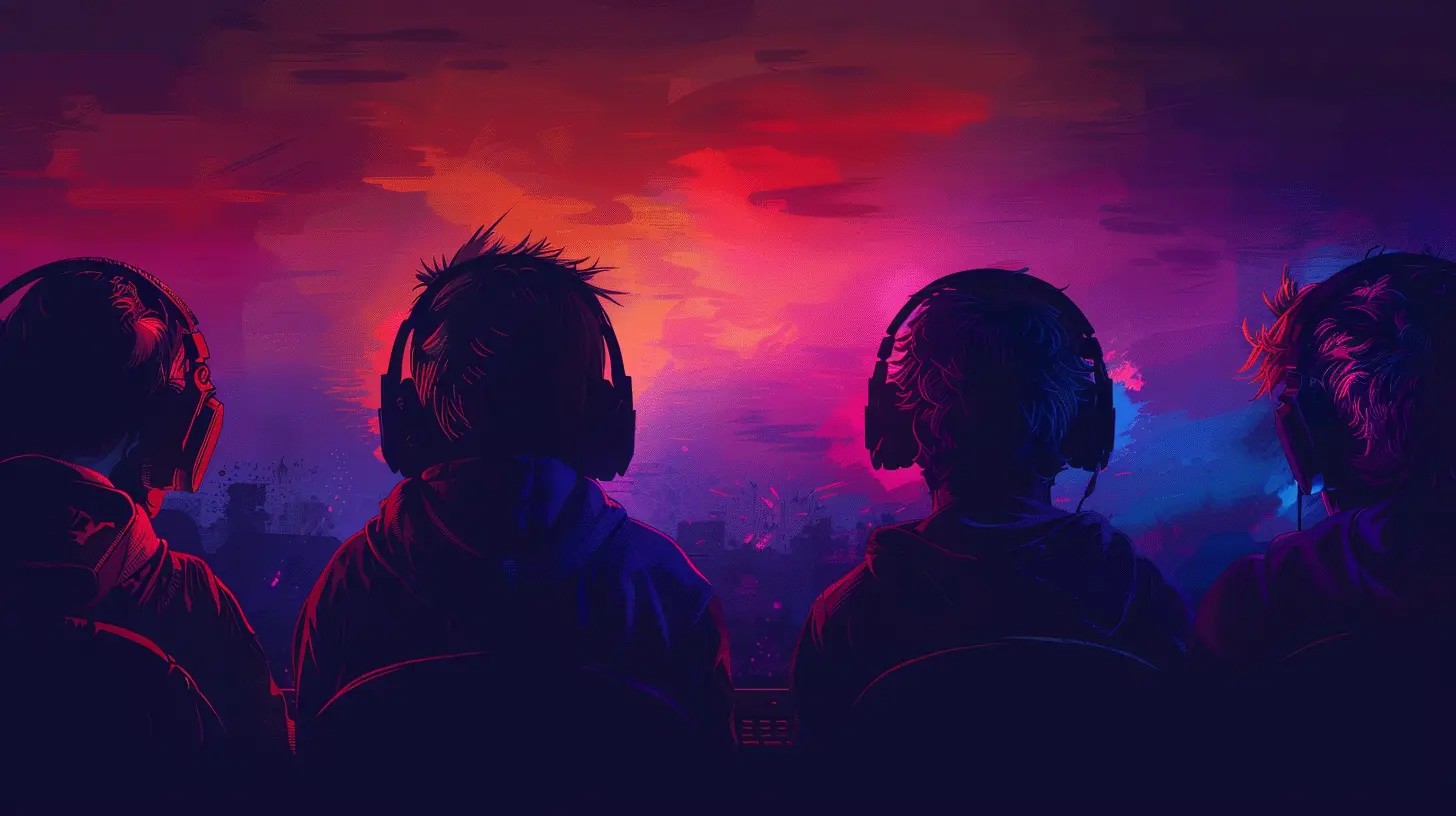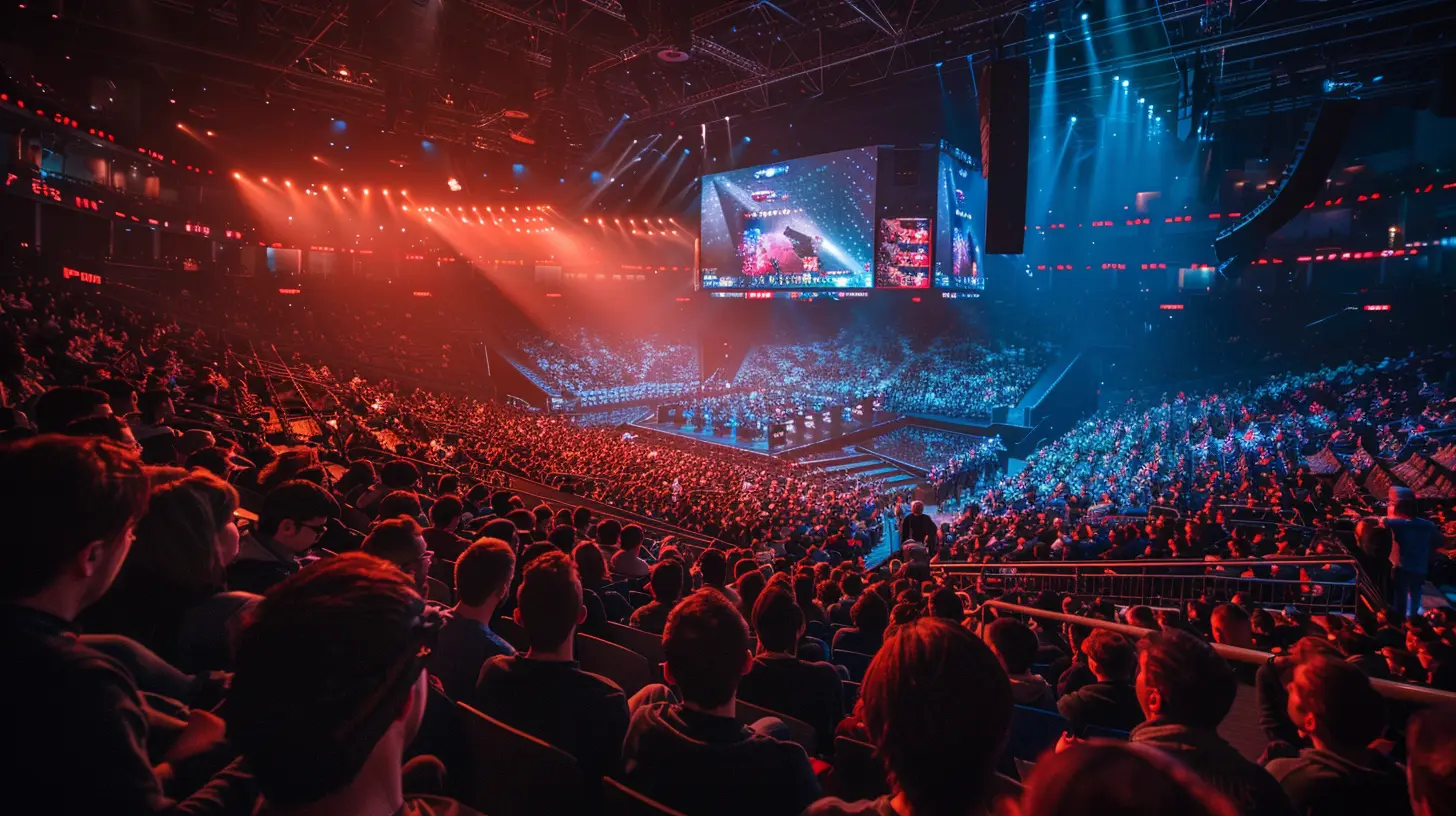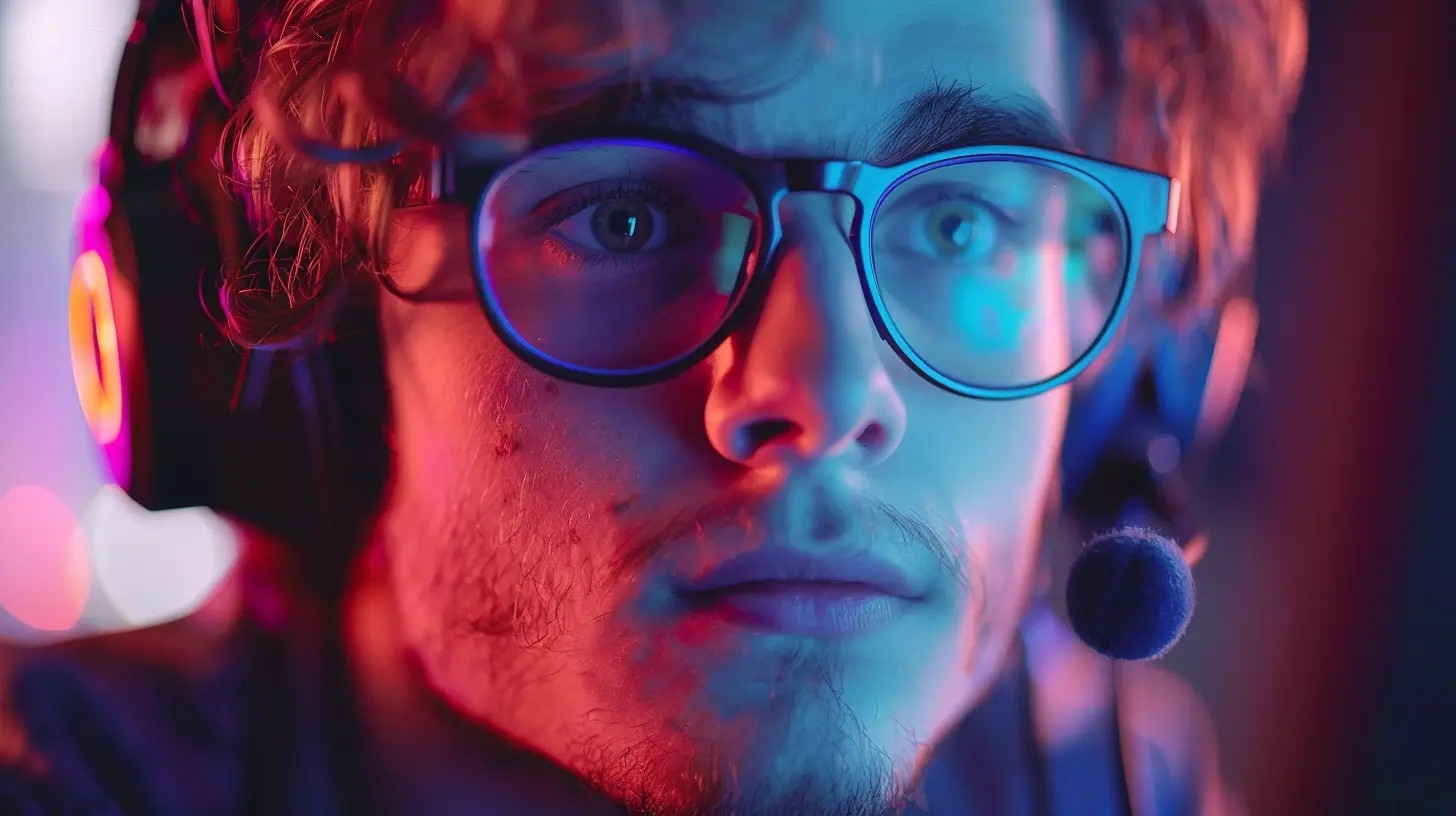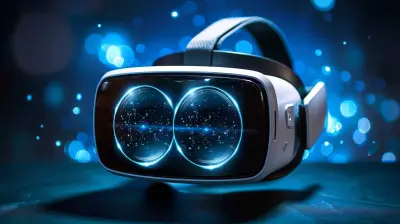The Impact of Social Media on the Careers of Esports Players
6 November 2024
Social media has become an essential part of our daily lives. From sharing personal moments to staying informed about world events, social platforms have made it easier for people to connect, communicate, and consume content. But what happens when social media intersects with the rapidly growing world of esports? For professional gamers, social media isn't just a tool—it's a game-changer.
Whether you're a casual gamer, an aspiring esports player, or just curious about how social platforms are reshaping careers in competitive gaming, this article will shed light on the undeniable impact social media has on the lives and careers of esports players.

The Rise of Esports and Social Media
Esports, for those unfamiliar, refers to organized, competitive video gaming. It's no longer just about playing video games for fun; it's a multi-billion-dollar industry where professional players compete in tournaments watched by millions.But as the esports industry exploded in popularity, so did the importance of social media. Platforms like Twitch, YouTube, Twitter, and Instagram have given esports players an unprecedented opportunity to connect with fans, promote themselves, and even earn extra income.
In the early days of competitive gaming, players were judged solely on their skills. Nowadays, a strong social media presence can be just as important as in-game performance. Why? Because social media provides a platform for building a brand, engaging with fans, attracting sponsors, and securing long-term success.

The Power of a Personal Brand
In esports, your gaming skills will get you noticed, but your personal brand keeps you relevant. Social media allows players to craft and promote their personal brand in real-time, giving them control over how they are perceived by fans, teams, and potential sponsors.Think of a personal brand as your identity in the esports world. It’s how fans relate to you, how sponsors see your marketability, and how you distinguish yourself from your competition. Esports players who invest time in building a strong, authentic personal brand often see huge returns.
For instance, Tyler “Ninja” Blevins, one of the most well-known esports figures, didn’t just rise to fame due to his gaming skills. His persona, humor, and consistent social media engagement turned him into a global icon. Ninja's ability to connect with fans through platforms like Twitch and Instagram made him more than just a player; he became a household name.

Engaging with Fans
In esports, fan engagement is key. Unlike traditional sports, where athletes may only interact with fans during games or at special events, esports players have the unique advantage of engaging with their audience on a daily basis through platforms like Twitch or Twitter.Streaming on Twitch, for example, allows players to not only showcase their gameplay but also interact with their audience in real-time through chat. This creates a more personal connection between the player and the fanbase, turning casual viewers into loyal followers.
If you're a fan of a particular esports player, being able to watch them stream, ask questions, and even get a shoutout can make you feel like part of their journey. This level of interaction is unparalleled in traditional sports and is one reason why many esports players see their fanbases grow exponentially.
Monetizing Through Social Media
Let’s talk about the money.One of the most significant advantages social media offers esports players is the ability to monetize their presence. While tournament winnings can fluctuate, a strong social media following can provide consistent income streams through brand deals, sponsorships, affiliate marketing, and donations.
Sponsorships are a huge source of revenue for esports players, and brands are more likely to partner with players who have a dedicated following. For example, if a player has a large audience on YouTube or Instagram, companies may reach out to sponsor their content, whether it’s promoting a new gaming peripheral or wearing branded merchandise during streams.
Players with sizable followings can also leverage platforms like Patreon or direct donations through Twitch to earn money from their most loyal fans. This allows esports players to have more financial stability, even if tournament winnings are inconsistent.
Social Media as a Pathway to Opportunities
For aspiring esports players, social media can be the key to getting noticed by major teams and organizations. Back in the day, you had to grind your way through countless tournaments just to get a scout's attention. Today, you can showcase your skills and personality directly on platforms like YouTube or TikTok, opening doors that were once inaccessible.Many esports players have been discovered through viral clips or online tournaments that were streamed on platforms like Twitch. If your gameplay goes viral, you’re essentially putting your resume out there for the world to see. Teams are always on the lookout for talent, and a well-timed social media post can be the difference between staying in obscurity and landing a professional contract.
The Pressure of Maintaining a Social Presence
While the benefits of social media for esports players are enormous, it's important to acknowledge the downsides too. Constantly maintaining a presence online can be exhausting. Esports players are expected to not only perform well in-game but also engage with fans, create content, and keep up with the latest trends on social media.This constant pressure can lead to burnout. Players may feel the need to stream for hours every day, post on social media, and stay relevant in a fast-moving industry. After all, social media never sleeps, and the fear of becoming irrelevant is real.
Additionally, mistakes are amplified on social media. One wrong tweet, an offhand comment during a stream, or a poorly timed post can lead to backlash. In the fast-paced world of esports, where news spreads quickly, the consequences of a social media mishap can be career-altering.
The Role of Social Media in Shaping Public Perception
Another major impact social media has on the careers of esports players is the role it plays in shaping public perception. Players need to be mindful of how they present themselves online because everything they post is public and can be scrutinized.Players who use social media responsibly often find that it enhances their careers. They can use platforms to speak out on important issues, share their thoughts on the gaming industry, and even promote causes they are passionate about. This can help them gain a broader following and respect within the community.
On the other hand, players who engage in toxic behavior online, such as trash-talking opponents or expressing controversial opinions, may find themselves alienating fans and potential sponsors. Social media is a double-edged sword, and how players wield it can make or break their careers.
Social Media and Team Dynamics
Lastly, social media can influence team dynamics in esports. Many esports organizations encourage or even require their players to maintain a social media presence, as it helps promote the team’s brand. Players who are more active online can help bring more visibility to their team, leading to better sponsorship deals and a larger fanbase for the entire organization.However, this can sometimes lead to friction between players. For example, if one player is more popular on social media than their teammates, it could cause tension within the team, especially if the more popular player is getting more attention or sponsorships. Teams need to strike a balance between promoting individual players and fostering a collaborative team environment.

Conclusion
Social media is undeniably one of the most powerful tools available to esports players today. It allows them to build personal brands, engage with fans, monetize their content, and even get discovered by major teams. However, it's not without its challenges. The pressure to maintain an online presence, the risk of public scrutiny, and the potential for burnout are real concerns for many players.Ultimately, the impact of social media on the careers of esports players is multifaceted. When used effectively, it can propel a player to stardom and create long-lasting career opportunities. However, it's essential for players to approach social media with caution, ensuring they strike a balance between their online presence and their well-being.
For anyone looking to break into the esports world or understand how social media influences it, one thing is clear: social media is here to stay, and its impact on esports is only going to grow.
all images in this post were generated using AI tools
Category:
EsportsAuthor:

Michael Robinson
Discussion
rate this article
22 comments
Madalyn Hensley
Social media significantly enhances esports players' visibility, enabling brand partnerships, audience engagement, and career growth opportunities in competitive gaming.
February 17, 2025 at 9:57 PM

Michael Robinson
Absolutely, social media is a powerful tool that amplifies esports players' reach, fostering brand collaborations and deeper connections with fans, ultimately driving their career success.
Lisa Hurst
This article insightfully highlights how social media shapes esports careers, from personal branding to engagement with fans. Understanding this dynamic is crucial for aspiring players aiming to leverage online platforms for success in the competitive gaming industry.
February 4, 2025 at 7:15 PM

Michael Robinson
Thank you for your insightful comment! Social media indeed plays a pivotal role in shaping esports careers and fan engagement. I'm glad you found the article helpful!
Nadia McQuaid
Social media profoundly shapes esports careers, amplifying visibility and opportunities.
January 29, 2025 at 8:06 PM

Michael Robinson
Absolutely, social media not only enhances visibility but also connects players with fans and sponsors, significantly influencing their career trajectories in esports.
Monica McKellar
Social media boosts esports careers brilliantly!
January 26, 2025 at 12:00 PM

Michael Robinson
Absolutely! Social media enhances visibility, fosters community engagement, and opens sponsorship opportunities, significantly advancing esports careers.
Nyari McKellar
This article insightfully highlights how social media not only amplifies esports players' visibility but also influences sponsorship opportunities and fan engagement, ultimately shaping their careers. It’s fascinating to see digital platforms redefine traditional pathways to success in gaming.
January 22, 2025 at 3:38 AM

Michael Robinson
Thank you for your thoughtful comment! I’m glad you found the article insightful—social media truly is transforming the esports landscape in remarkable ways.
Pamela Gutierrez
Social media is a powerful tool for esports players, amplifying their reach and opportunities. Embrace it to elevate your career!
January 19, 2025 at 3:48 AM

Michael Robinson
Absolutely! Social media is a game-changer for esports players, providing a platform to connect with fans, sponsors, and other players, ultimately enhancing their career opportunities.
Asher Cole
This article beautifully highlights the complex relationship between social media and esports careers. It's crucial to recognize both the opportunities and challenges players face in this digital landscape. Understanding these dynamics can foster a healthier environment for aspiring gamers as they navigate their professional journeys. Thank you for sharing!
January 16, 2025 at 5:36 AM

Michael Robinson
Thank you for your thoughtful comment! I'm glad you found the article insightful in addressing the complexities of social media's role in esports careers. Your perspective on fostering a healthier environment for gamers is vital.
Maria McIntire
Great read! It's fascinating how social media has transformed the careers of esports players. From building a personal brand to engaging with fans, it's a game-changer. As a casual gamer, I love seeing my favorite players thrive both in and out of the arena!
January 8, 2025 at 11:29 AM

Michael Robinson
Thank you! I'm glad you enjoyed it. Social media truly has revolutionized how esports players connect with fans and build their brands. It’s exciting to see their success both in-game and beyond!
Zarev Chapman
Great insights! Social media truly reshapes esports careers, offering players unique opportunities while also presenting new challenges.
January 1, 2025 at 9:12 PM

Michael Robinson
Thank you! I'm glad you found the insights valuable. Social media indeed plays a pivotal role in shaping esports careers today.
Marni Rodriguez
Social media elevates esports players' visibility, builds brands, and influences sponsorships, fundamentally transforming how they manage their careers.
December 27, 2024 at 9:37 PM

Michael Robinson
Absolutely, social media is a game-changer for esports players, enhancing their visibility and brand potential, and shaping lucrative sponsorship opportunities in unprecedented ways.
Oscar Baxter
Who knew tweeting about headshots could land you a head start in the esports career race?!
December 14, 2024 at 9:15 PM

Michael Robinson
Social media, especially platforms like Twitter, can greatly enhance visibility and networking opportunities, giving aspiring esports players a competitive edge in their careers.
Porter McClain
Great insights on how social media shapes esports careers! It's inspiring to see how players leverage these platforms for growth and engagement. Excited to see how this evolves in the future!
December 8, 2024 at 8:43 PM

Michael Robinson
Thank you! I'm glad you found the insights valuable. It's an exciting time for esports and social media's role in shaping careers!
Kova Thornton
Who knew tweeting about your epic 360 no-scope could land you a sponsorship? Social media: the ultimate power-up for gamers!
December 3, 2024 at 4:58 AM

Michael Robinson
Absolutely! Social media has transformed how gamers showcase their skills, turning online presence into lucrative opportunities and sponsorships.
Emery McVicker
Social media makes or breaks esports careers—it's thrilling to see players thrive online!
November 30, 2024 at 1:04 PM

Michael Robinson
Absolutely! Social media is a game-changer in esports, allowing players to build their brands, connect with fans, and enhance their careers like never before.
Raine McGinn
Social media plays a crucial role in shaping the careers of esports players by enhancing visibility, facilitating fan engagement, and providing opportunities for sponsorships, thus influencing their professional growth.
November 28, 2024 at 7:46 PM

Michael Robinson
Thank you for your insightful comment! I completely agree that social media is vital for esports players, as it not only boosts visibility but also fosters engagement and opens doors to sponsorships, significantly influencing their careers.
Oliver Mercado
This article astutely highlights how social media has revolutionized career trajectories for esports players, enhancing visibility and fan engagement while also bringing challenges like pressure to maintain an online persona and navigate digital discourse effectively.
November 25, 2024 at 1:10 PM

Michael Robinson
Thank you for your insightful comment! I'm glad you found the article highlights the dual impact of social media on esports careers.
Quorra Mitchell
Social media significantly amplifies esports players' visibility and career opportunities.
November 23, 2024 at 1:40 PM

Michael Robinson
Absolutely! Social media not only enhances visibility but also opens doors for endorsements, sponsorships, and fan engagement, playing a crucial role in shaping esports careers.
Thorne McKale
This article beautifully captures the profound relationship between social media and esports careers. It’s inspiring to see how platforms can amplify voices, build communities, and shape opportunities for players. Thank you for shedding light on this important aspect of the gaming landscape!
November 21, 2024 at 12:25 AM

Michael Robinson
Thank you for your kind words! I'm glad you found the article inspiring and appreciate the importance of social media in shaping esports careers.
Liora McVicar
This article brilliantly highlights how social media empowers esports players! Exciting opportunities await, and the future looks incredibly bright! 🎮✨
November 19, 2024 at 12:06 PM

Michael Robinson
Thank you! I'm glad you found the article insightful—it’s exciting to see how social media continues to shape the esports landscape! 🎮✨
Paul Richardson
Intriguing insights! How does engagement shape success?
November 18, 2024 at 3:37 AM

Michael Robinson
Thank you! Engagement is crucial as it builds a loyal fanbase, enhances visibility, and attracts sponsorships, all of which significantly contribute to an esports player's success.
Justice Jimenez
Who knew that a perfectly timed tweet could be the ultimate power-up for an esports career? 🎮💥 Social media is like the ultimate cheat code, transforming gamers into celebrities. Let's just hope their followers also understand the importance of a good gaming snack during those long streams! 🍕😄
November 12, 2024 at 3:46 PM

Michael Robinson
Absolutely! Social media is a game-changer, elevating gamers to celebrity status and enhancing their brand—good snacks included! 🍕🎮
Alanna McKinney
Social media boosts visibility, networking, and brand opportunities for players.
November 12, 2024 at 3:34 PM

Michael Robinson
Absolutely! Social media plays a crucial role in enhancing visibility and networking for esports players, opening up numerous brand opportunities and elevating their careers.
MORE POSTS

Why Collaboration Tools Are Essential for Tech Startup Success

How to Build a Global Tech Startup from a Local Market

How to Create Engaging Visuals Without Being a Designer

The Rise of Big Data in Sports Analytics

Game-Changing Software for Content Creators

The Impact of 5G on the Esports Industry

Exploring the Psychological Effects of Long-Term Virtual Reality Use

The Importance of Cross-Cultural Collaboration in Esports

Blockchain for Renewable Energy Trading: A Greener Future

Wireless Chargers Compared: Which One Is the Fastest?

How Decentralized Autonomous Organizations (DAOs) Are Changing Governance

Noise-Canceling Headphones: A Jetsetter's Best Friend

Wearables in Space Exploration: Connecting Astronauts with Earth